Woman who hid Jewish friend nominated for Israeli honour
- Published
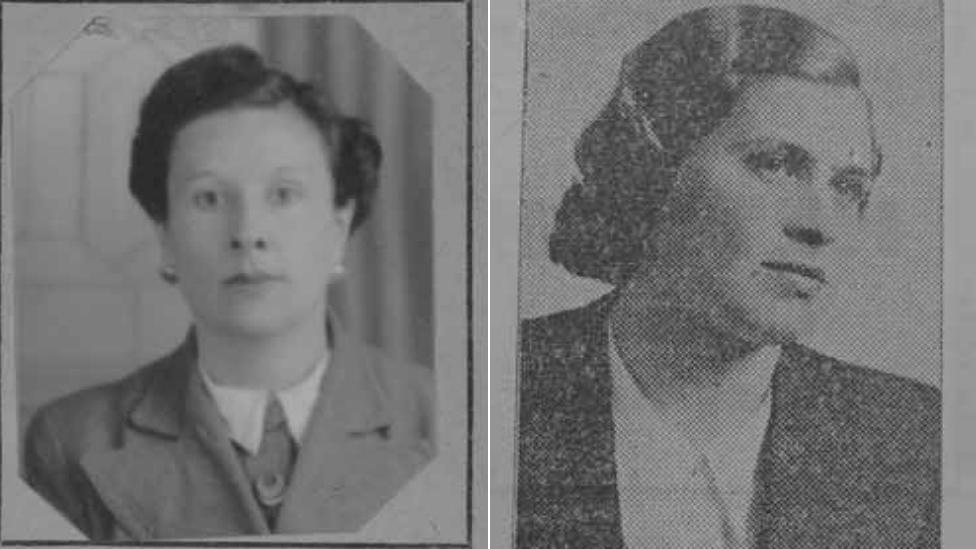
Dorothea Weber - nee Le Brocq (left) risked her life to hide her Jewish friend Hedwig Bercu (right) during the German occupation
A woman who risked her life by hiding a Jewish friend during World War Two, but ended up being disgraced as a bigamist, could finally have her heroic actions honoured by the state of Israel.
While Dorothea Weber's husband was fighting for Hitler's forces in Europe she was hiding her friend Hedwig Bercu, who was being hunted by the Germans in Nazi-controlled Jersey.
Now more than 70 years later Cambridge University academic Gilly Carr has requested Dorothea become only the second Channel Islander to receive the Righteous Among the Nations honour on the Yad Vashem - the Jewish living memorial to the Holocaust.
Dr Carr is also trying to solve the mystery of what happened to Dorothea, whose fate after her bigamy conviction in 1949 is unknown.
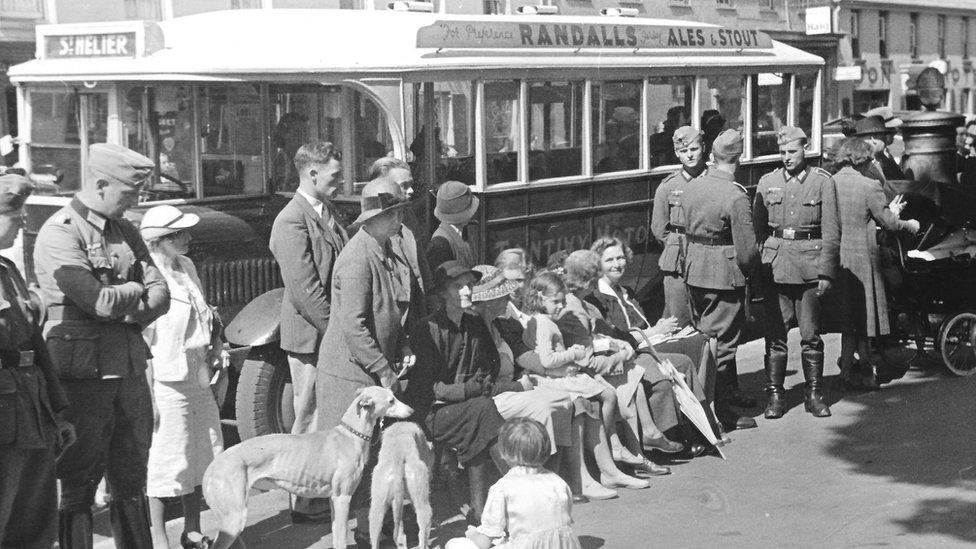
Jersey was occupied by German forces from June 1940 until May 1945
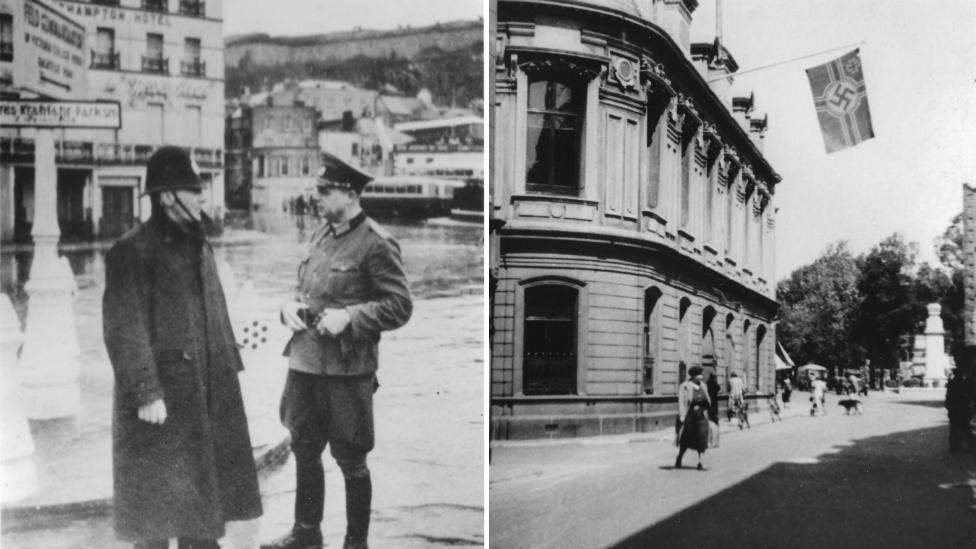
Thousands of German troops were stationed in Jersey and the Channel Islands were heavily fortified as part of Hitler's Atlantic Wall
For 18 months Dorothea shared her rations with Hedwig, who in desperation had faked her own death in a bid to escape persecution - although the Germans saw through the ruse.
Dr Carr said: "If she [Dorothea] had been caught, it is likely that she would have been sent to a concentration camp, as would Hedwig."
German forces ruled the Channel Islands from June 1940 until May 1945 and made people they deemed to be Jewish register with island authorities.
In 1942 three Jewish women from Guernsey were deported to France and were later interned, with all three dying in Auschwitz's gas chambers.
Some of the other registered Jews in the Channel Islands ended up in civilian internment camps and returned home after the war.
Hedwig Bercu was 24 when she went into hiding after a disagreement with a lorry driver who reported her to the Germans for smuggling petrol coupons out of the office where she worked.

Hedwig Bercu faked her own death, leaving a pile of clothes and a suicide note at St Aubin's Bay
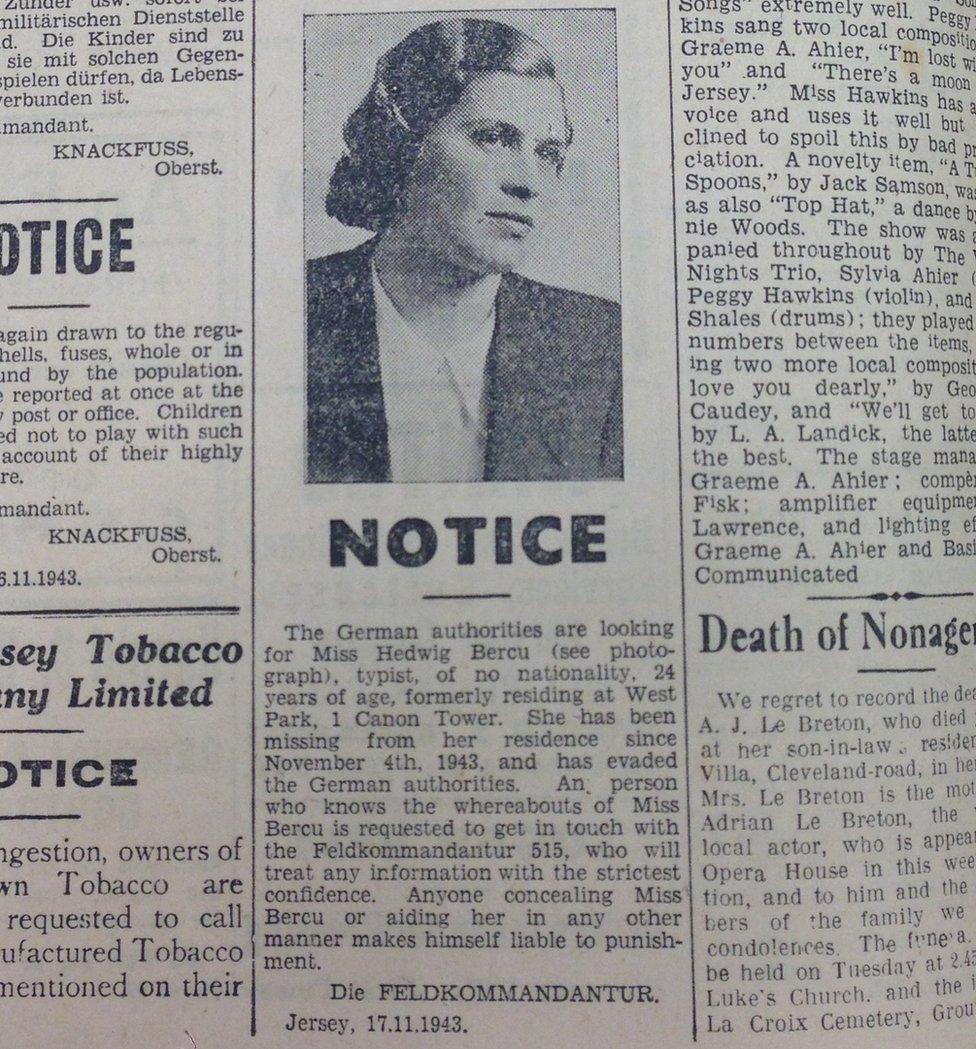
But the German authorities did not believe she had killed herself
As one of a handful of registered Jews - fewer than 100 lived in the Channel Islands pre-1939 and most were evacuated before the occupation - she believed her life was in danger and she left a fake suicide note and a pile of clothes on a beach at St Aubin's Bay.
This act did not fool the German authorities who put a wanted notice for her capture in the local paper.
Despite the Germans warning islanders they would be "liable to punishment" if they hid Hedwig, Dorothea was not deterred.
According to local historian Freddie Cohen, who was the first person to discover Dorothea had hidden Hedwig, the pair survived by sharing Dorothea's ration and fishing at night.
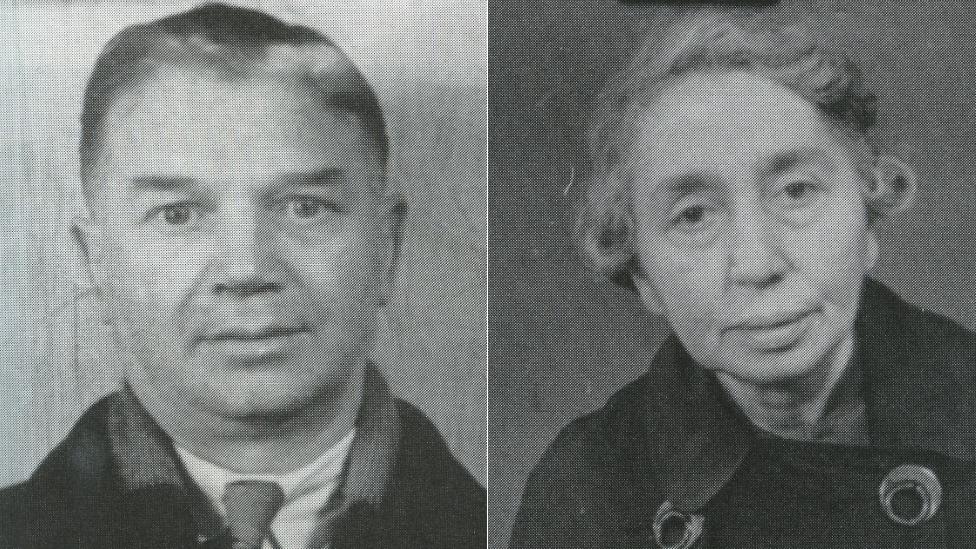
Albert Bedane is so far the only Channel Islander to receive the Righteous Among Nations honour, which he was awarded for sheltering Jewish woman Mary Richardson
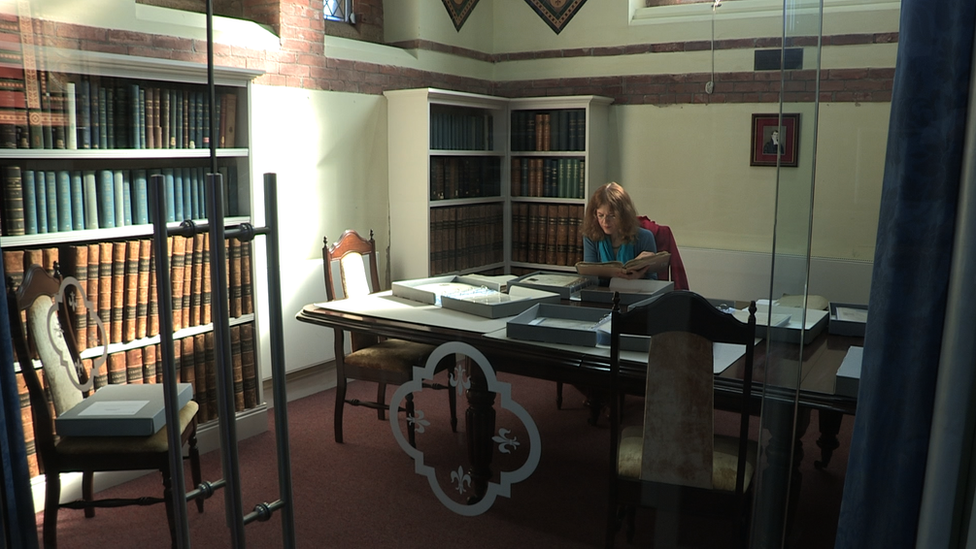
Dr Gilly Carr is campaigning to have Dorothea Weber's actions recognised by Israel
Dr Carr said: "'It is quite possible that Dorothea could have been outcast by friends and family. In 1941 she married Anton Weber, an Austrian baker who was forcibly drafted into the German army.
"Dorothea could have been seen as a 'jerry bag', the derogatory name for women who consorted with German soldiers.
"Her reputation would not have been helped by the occasional presence at her house of Kurt Ruemmele, a German soldier who was sweet on Hedwig Bercu, and who smuggled food to the two women after Hedwig went into hiding."
After the war Hedwig followed him to the UK where he was being held in a prisoner of war camp and they later married, raising a family in Germany.
Hedwig's daughter Marion Oberer-Ruemmele said her mother, who died in 2009, never told her family about what happened in Jersey.
"It's an amazing story; sometimes it makes me angry that she never spoke to us about it.
"It was absolutely incredible what both of my parents went through, they were so brave."

Righteous Among Nations
Awarded by the Yad Vashem - the Jewish living memorial to the Holocaust - on behalf of the state of Israel
Given to non-Jewish people who risked their lives to save Jews during the Holocaust, perhaps the most famous of whom is Oskar Schindler
The main reasons for receiving the honour include hiding Jews, rescuing children and helping Jews to escape
Jersey physiotherapist Albert Bedane is the only Channel Islander to receive the honour, which he was awarded for sheltering a Jewish woman during the occupation
The names of the "Righteous Among the Nations" are added to the Garden of the Righteous at Yad Vashem in Jerusalem
Applications for the honour must include available data such as survivor testimonies which are evaluated by a board of experts
More than 25,000 have received the award since 1963, with 21 people honoured in Great Britain
The Yad Vashem has confirmed it is reviewing Dorothea's application but said the "process will take some time"

Stephen Regal, president of the Jersey Jewish Congregation, said: "It is important to perpetuate [accounts of] not just the suffering but the positive sides of the war.
"Dorothea needs to be remembered and this could help encourage other people to speak out against injustice in the future."
Dorothea's heroism was not recognised at the time and she was to suffer heartbreak and humiliation after the occupation.
Believing her husband had died in the war she inadvertently committed bigamy by marrying a liberated British soldier, Francis Flanagan.
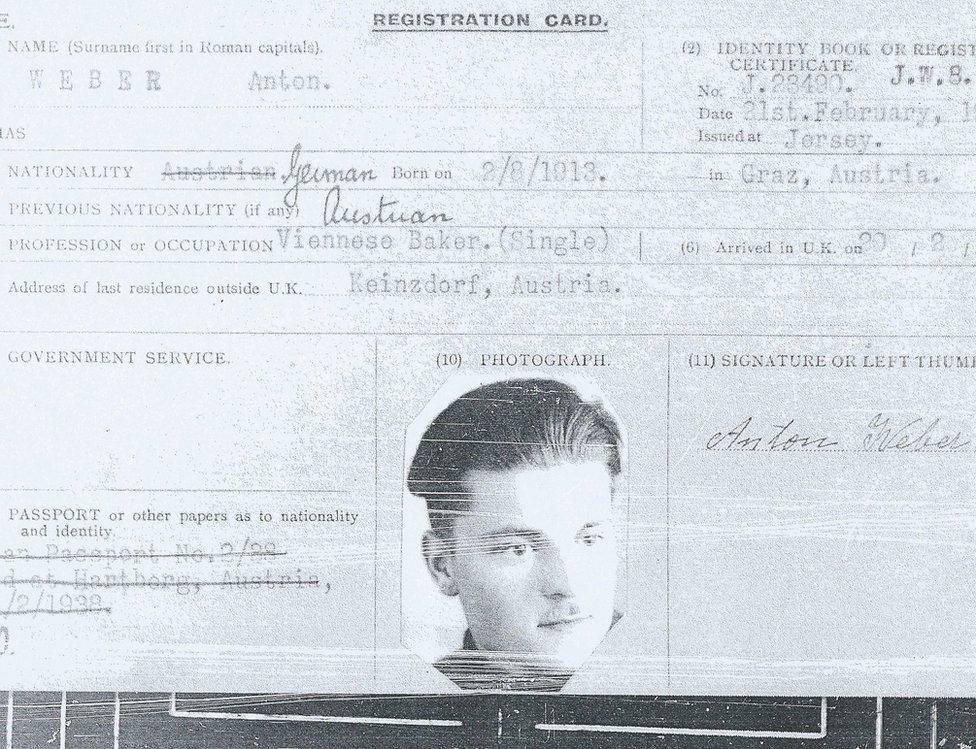
Dorothea Weber - nee Le Brocq - believed her husband Anton was dead and inadvertently committed bigamy
When her lawful husband returned from a Russian PoW camp in 1949 she was hauled into court to stand trial for bigamy and given a one-year probationary sentence.
Maggie Andrews, professor of cultural of history at the University of Worcester, said: "Bigamy was not particularly unusual after the war.
"Communications weren't good: armies weren't talking to each other, systems weren't linked up on one big computer. People made assumptions their other halves were dead."
Little is known about Dorothea's whereabouts after this time and Dr Carr and Jersey researchers Lucy Layton and Alice Allen are appealing for information about her fate.
Dr Carr said: "After the bigamy trial in 1949, the trail goes cold. We cannot find any trace of Dorothea in the UK or Jersey after this date. Did she leave Francis Flanagan to be with Anton in Austria?"

Find out more about World War Two from BBC iWonder:
- Published1 November 2015
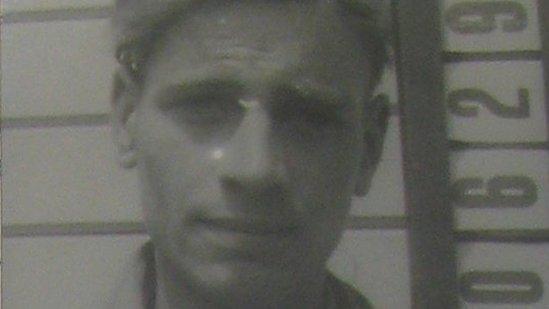
- Published9 May 2015
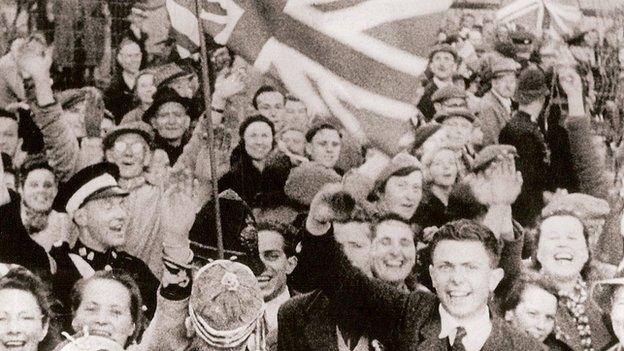
- Published8 May 2015
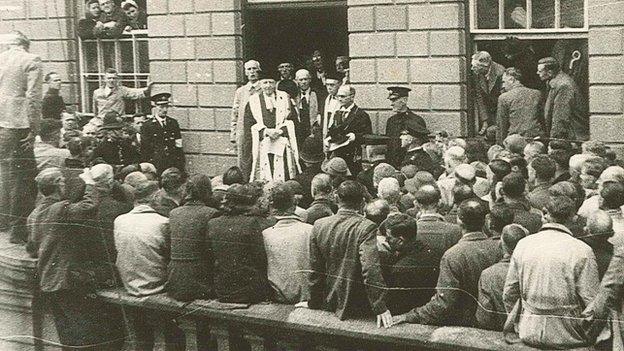
- Published4 May 2015
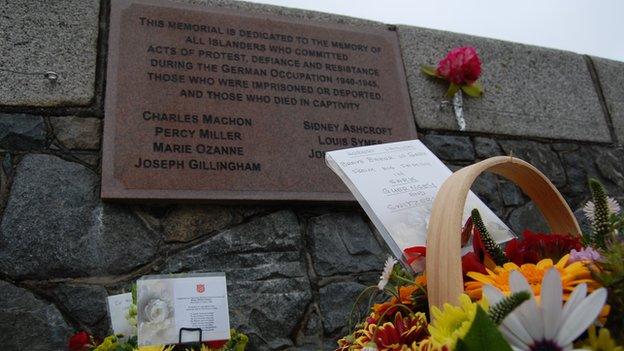
- Published15 January 2015
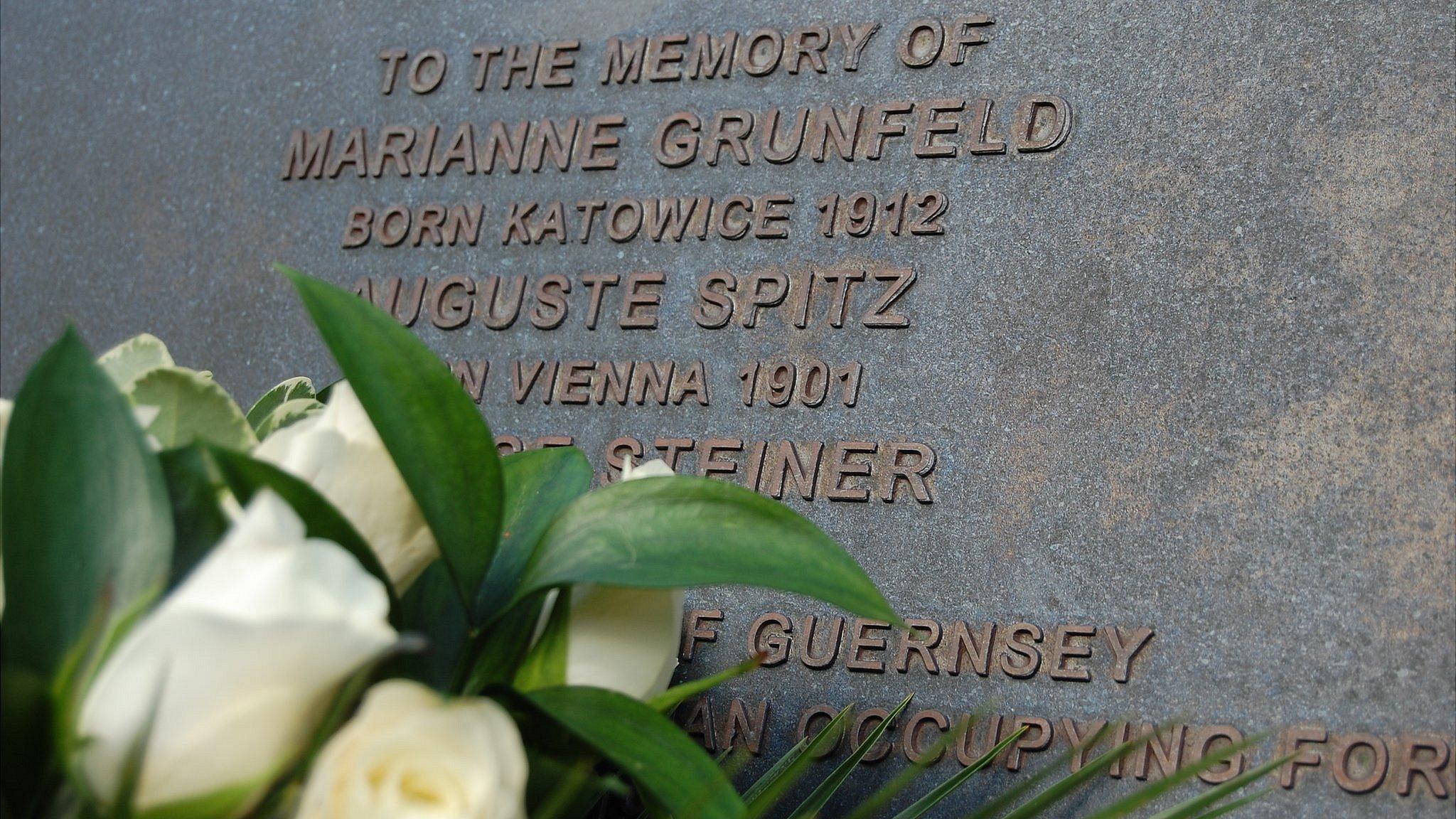
- Published29 December 2014
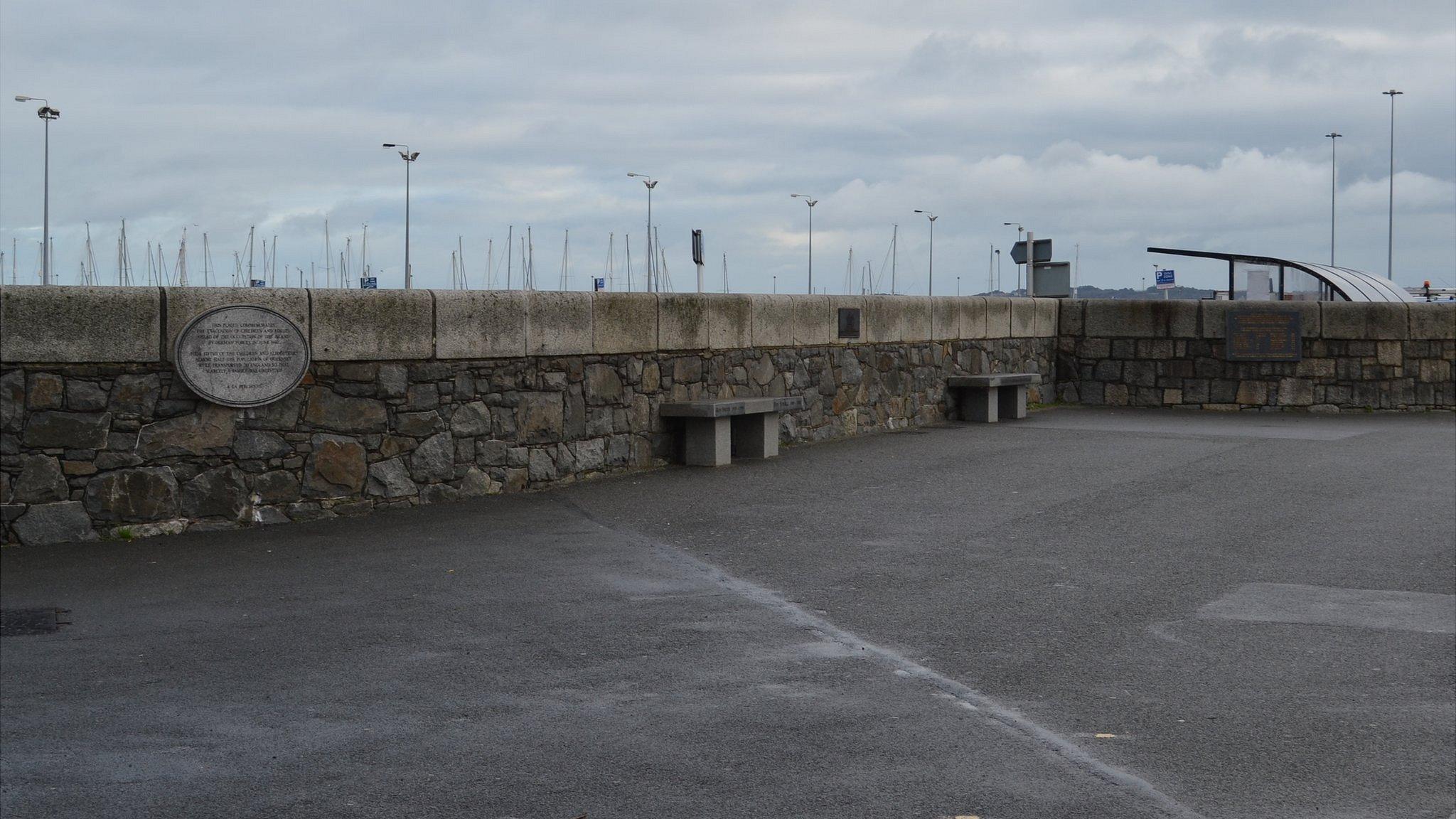
- Published26 November 2014
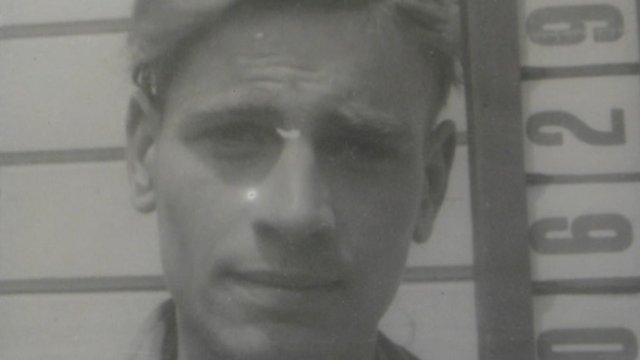
- Published3 October 2014
